Posted on 12/21/2021
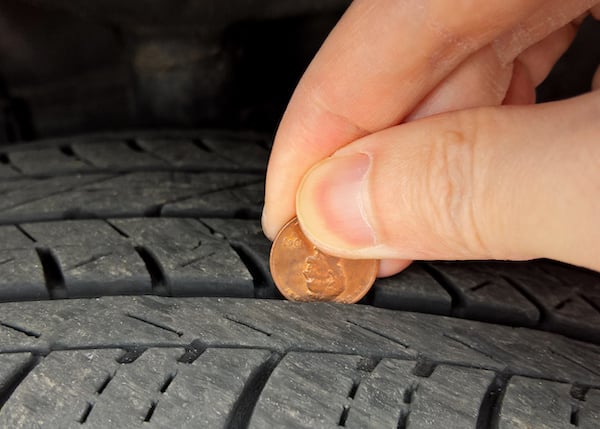
Tire tread is the key factor that indicates when you need to replace your vehicle's tires. Tread provides you with the necessary traction to safely stop and turn. Lastly, treads on your tires help funnel water out from under the tire to minimize hydroplaning on wet roads. The U.S. Department of Transportation suggests that motorists replace tires when they've worn down to 2/32 inch (or 1.6 mm). Signs of Wear Besides tread depth of less than 2/32 inch, other signs can indicate the need for new tires, including: Exposed fabric or cord on the tires Bump, bulge, or knot that impacts the tire structure Unrepairable punctures Uneven wear caused by driving on a flat tire Bent, cracked, rusty, or damaged rim/wheel Improper tire repairs and services While tread depth is an obvious indicator, it can be difficult to measure an increment that tiny. Most professionals use a tread depth gauge to measure tread. But if you don't have one on hand, you can use a penny ... read more
Posted on 11/19/2021
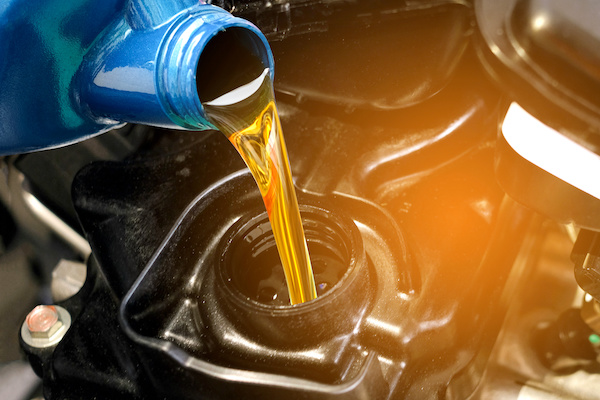
How do you know which type is best suited for your vehicle with multiple engine oils to choose from? Fortunately, the process of finding a good match doesn't have to be overwhelming, and it is relatively easy. First and foremost, you should always check your manufacturer's recommendations (listed in your owner's manual). When making this decision, you should also consider driving habits, vehicle style, and environmental factors (climate). Here's a deeper look at the different types of oil you can get for your vehicle! Full Synthetic Oil Synthetic oil has many attractive attributes. For instance, it has a higher viscosity, which can withstand sludge buildup, hot temperatures, and corrosion. Synthetic oil is also more consistent in formulation, which minimizes the friction inside the engine and increases overall efficiency. If you own a high-performance vehicle, synthetic oil is the preferable option. The only setback of synthetic motor oil is its higher price tag. Howe ... read more
Posted on 10/14/2021

An auto warranty is an important factor to consider when it comes to purchasing a car. It is a contract that compensates for the cost of repairing or replacing parts of your vehicle for some time. However, not all car warranties are created equally, which is why you must read over the fine print before making your purchase. Factory Warranty If you bought your vehicle from a dealership, you probably have a factory or manufacturer’s warranty. This type of warranty is possible for new, used, and certified pre-owned cars to cover any defective parts caused by any assembly errors. It is also only valid up to a certain number of miles or years. Some manufacturers are more forgiving than others, so that the numbers can vary. Another feature of the factory warranty is that it is movable from one owner to another as long as it hasn’t expired or been terminated. Unfortunately, they can void the contract if you fail to follow factory guidelines, such as keeping up with regular main ... read more
Posted on 9/15/2021
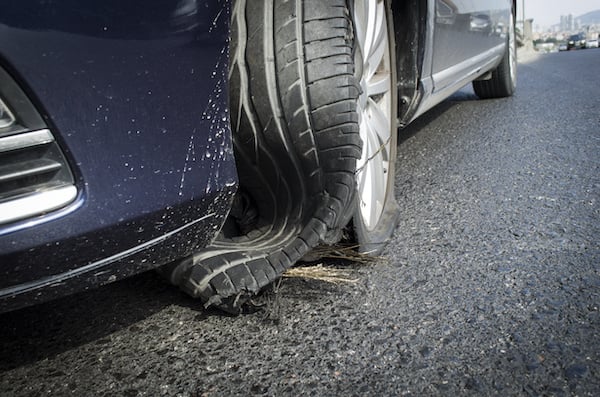
At first, you may think that a tire blowout is the same as a flat tire, but they are not the same. Flat tires typically have a slower pressure loss, whereas blowouts encompass rapid pressure loss and happen more dramatically. Because most of today's tires on the market are usually very reliable, blowouts don't occur as often as they did in the past. However, they are still possible! Here are the six most common causes of tire blowouts! Road Damage We all know that the road is a dangerous place to be. Rubble and potholes can wipe out a tire in a blink of an eye if you are not careful. You can blow out a tire when you drive over something you may not have seen while driving. Things like glass or a nail can sneak up on you and be just as dangerous as hitting a curb. Running over these items in the road in combination with poor quality tires can result in a blowout! Too Low of Air Underinflated tires pose a higher risk for a tire blowout. If your tires don't h ... read more
Posted on 8/12/2021
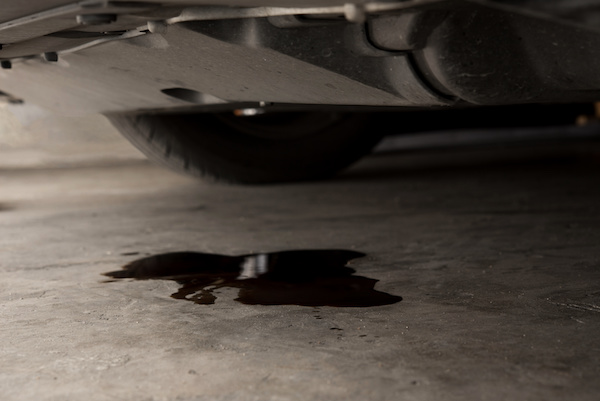
Every car will experience a leak from time to time. However, be wary of an oil leak because it can lead to major complications if left unattended. The most apparent indication of an oil leak is if you see a dark puddle of oil underneath your car. You may also be able to smell it since oil gives off a distinct scent. The problem with oil leaks is that they can be hazardous to the environment and harm your engine. Here are some of the most common causes of oil leaks that we see here at LexBrodies: Damaged or Worn Seals The system that stores your engine oil has gaps in it that are supplied with valves or seals. If these components become damaged or old, it can cause oil to seep out of the system. Broken Oil Pan Damaged pans usually emerge from collisions or when you run over rubble on the road. The oil pan is situated very close to the ground, which causes it to damage easily. Do your best to avoid road impediments when you're driving. Old Filter O ... read more
Posted on 7/12/2021

Your vehicle's braking system is the most important safety feature of your car, which is why you should always replace them on time. Your brake pads will last about every 50,000 miles, but they can vary depending on driving conditions and usage. Here are our top tips on how to prolong the life of your brake pads. Avoid Speeding Surprise-surprise, but speeding never ends well for anybody. If you hit a full and complete stop after ramping up your RPM, you are at risk of prematurely wearing out your brake pads. Brake pads operate by converting energy into heat – and this means they become worn out more quickly the more energy they have to dissipate. If you slow down slowly, you can save wear and tear on your brake pads. Another negative of hurrying into a stop is that you're wasting excess gas. Only Use 1 Foot As you probably learned all the way back from Driver's Ed, you should only have one foot operating both the brake and acceleration pedals ... read more
Posted on 6/22/2021
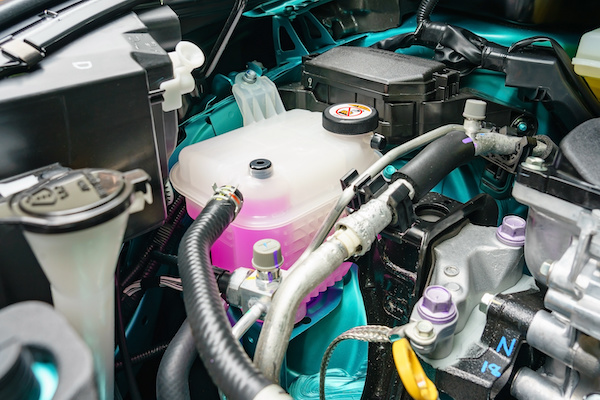
Every time you start your car, the engine heats up from the combustion processes. Sometimes, it can reach extreme temperatures. As a result, every car is built with a cooling system to prevent your engine from overheating. The heating system functions by eliminating excess heat from the engine. It also sustains an optimum operating temperature inside the vehicle and restores the appropriate temperature to the engine. The cooling system is thus vital to assure you of a dependable ride from Point A to Point B. The cooling system comprises many parts that work together -- Radiator, Fan, Thermostat, Water Pump, and Freeze Plug are only several among others. If any of these pieces malfunction, it will bring about significant danger to the engine. The good thing is that it is relatively simple to detect trouble within the cooling system. Some of the symptoms that indicate a failing cooling system include: Smoke Arising From the Hood If you notice smoke coming from ... read more
Posted on 5/18/2021
.jpeg)
Your engine fuel injectors can collect grime, dirt, and soot leading to an air-fuel mixture imbalance for your car. When this happens, you may notice poor performance, rough idling, and inconsistent gas mileage over time. Spotting these signs and having your fuel injectors cleaned could help you optimize engine performance early enough. That said, obtaining effective engine performance is impossible with a clogged fuel injector. How to Detect a Dirty Fuel Injector Regular maintenance, profound injector function understanding, and knowledge to identify a dirty fuel injector could be helpful for every car owner. You will know it is time to visit your mechanic to clean your defective fuel injectors if you experience the following: Engine Stalls or Rough Idle Your car may sputter or shake, mostly during traffic stops. The engine idling is mainly due to inconsistent revolutions per minute (RPMs). A sudden decrease in fuel supply, especially during uphill climbing, may accompany rough id ... read more
Posted on 4/23/2021
.jpeg)
When you see one of those pesky icons light up on your dashboard, check the owner's manual to identify what that icon means. It may be time for a tune-up. Your average gas mileage is dropping for no apparent reason. If you keep track of your mileage every time you fill up, you'll be able to spot trouble with your car's gas-burning efficiency quickly. Have your mechanic check the spark plugs and fuel injector. A tune-up may be just what your car needs to smooth out your ride. Slow acceleration and stalling can be quite annoying when you're driving. These are signs that you have dirty spark plugs or a loose connector. Also, your battery may be running low or your fuel pump may be plugged. Tell your mechanic what the weather conditions are when your car stalls. On hot days, you may be experiencing difficulties with the air conditioner. A tune-up may fix the problems. When you're driving on a smooth road, do you notice strange vibrations? Does this happen only at cer ... read more
Posted on 3/16/2021
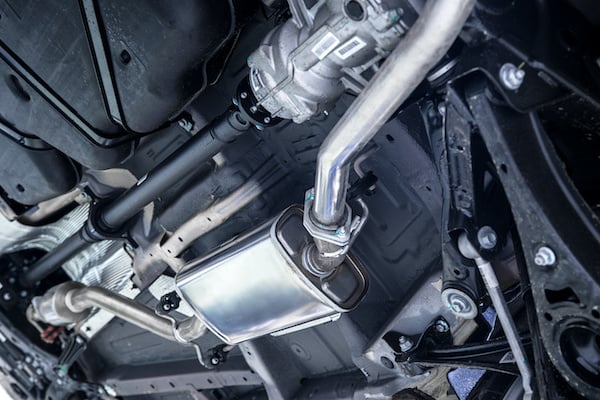
A car's optimum performance depends largely on the exhaust system. The system has the responsibility of emitting gases and other combustion components from the automotive engine. If further reduces any unnecessary noise generated, making the ride comfortable and smooth. The exhaust system is a composition of different components that work collaboratively in achieving its functions. These parts include: Exhaust manifold Oxygen sensors Piping Catalytic converter Resonator Silence Tailpipe If there is trouble with any of the components, the functioning of the exhaust system is compromised. There are common exhaust system troubles that many drivers have report. They require immediate mechanical interventions to ensure safety while on the road. They include; Bad Oxygen Sensor Oxygen sensors are responsible for balancing the air and fuel mixture. They are located in the exhaust system. Their malfunctions are common, and this affects the computer engine. It results in improper a ... read more